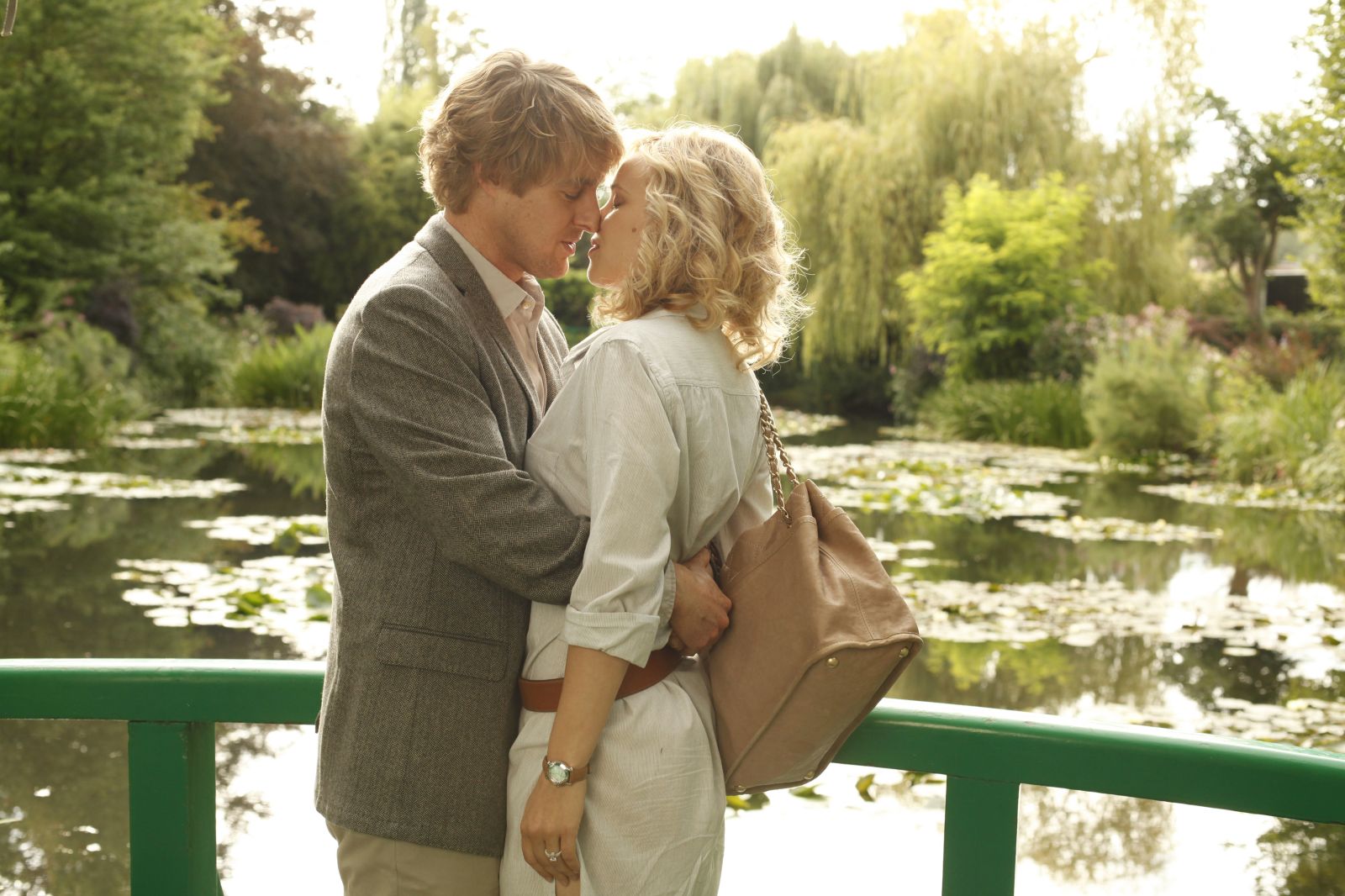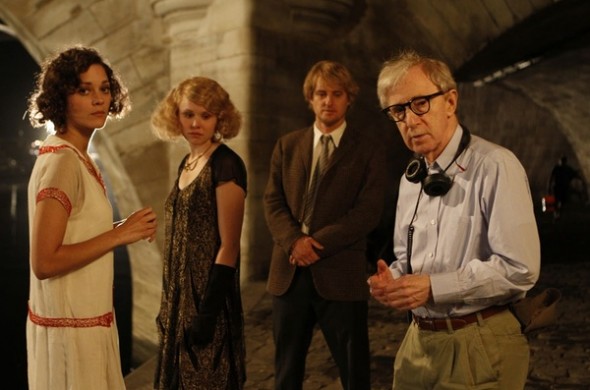|
Midnight in Paris
Reviewed
by
Sophie Whin on
October 17th, 2011
Hopscotch Films presents
a film directed by
Woody
Allen
Screenplay
by
Woody Allen
Starring:
Owen
Wilson, Rachel McAdams, Marion Cotillard and Michael Sheen
Running
Time:
94 mins
Rating:
PG
Released: October 20th,
2011
|
9/10

|
|
Auter
director Woody Allen has finally found
gold again. Churning out almost a film a year since his directorial
debut over
forty years ago, Allen’s Midnight in
Paris is set to become his largest box office success to date.
Imbuing
light comedy with elements of nostalgia, his new work highlights a
return to
his witty roots and displays an unparalleled triumph in regards to its
fantastical subject matter.
Enter Gil
Pender (Owen Wilson) a
disillusioned Hollywood screenwriter who yearns to break away from the
superficiality of the North American film industry. Whilst holidaying
in Paris
with his fiancé Inez (Rachel McAdams), Gil is captured by the earthly
delights
of the city and determines that to become a ‘real’ writer he must
immerse
himself in the urban environment. Discontent with endless tourist
adventures
and stuffy tea engagements with Inez’s parents, Gil explores the city
at night
in hope of finding a muse from the picturesque scenery and cultural
splendour.
In true Cinderella fashion, when the clock strikes midnight along the
Rive
Gauche, Gil is indivertibly transported to Paris in the 1920s, a time
he
continuously proclaims as the Golden Age of thought. Returning each
night, Gil
rubs shoulders with the likes of F. Scott Fitzgerald (Tom Hiddleston),
Ernest
Hemingway (Corey Stoll), Gertrude Stein (Kathy Bates) and Salvador Dali
(Adrien
Brody), with Stein critiquing his work in much the same way as she did
with
Hemingway. Gil also catches the eye of Picasso’s mysterious muse
Adrianna
(Marion Cotillard), who like himself, desires a time that is not her
own.
Caught between the past and present, Gil is forced to confront his own
inadequacies concerning the direction of his life and choose how he
wants to
live in his future.

Allen’s
departure from the darker tone of
his more recent films is surely the best choice he has made in a
decade. The
simple plot is riddled with tongue-in-cheek references to the glorified
past
and Allen makes sure to insult the very craft that has made him so
renown. The
greatest impact of Midnight in Paris is
the examination of the human desire for a time that has long since
flown. We
always speculate ‘Wouldn’t it have been great to live in this era?’ and
in this
offering Allen tackles the What If’s of life head on. As the lead, Owen
Wilson
has perfect sincerity in his portrayal as the whimsical Gil. Although
he takes
on a lesser version of the Woody Allen method, Wilson manages to convey
the
same neuroses of unfulfilled dreams and social disconnection that are
paramount
within any Allen film. As Gil’s fiancé Inez, Rachel Adams is excellent
and her
interactions with Michael Sheen’s pseudo-intellectual are faultless.
Sheen’s
character Paul is the kind of man Inez wishes Gil to be, without
compromising
his high paying job or his house in Malibu. It should be noted that
French
First Lady Carla Bruni makes a brief but memorable cameo as a tour
guide who
exposes Paul’s surface intellect as the farce that it is. The spotlight
however
is completely on the ‘Lost Generation’ of Paris, with Bates, Cotillard
and
Brody putting particular emphasis on the artistic cliché. Stoll’s
Ernest
Hemmingway can’t go out for a night without recalling the poetic
horrors of war
and Zelda Fitzgerald (Alison Pill) is a mess every time drink is added
into the
mix. If we were to meet these pinnacles of American lore, Allen’s
appropriation
of their character is spot on. He uses the magic of Paris and the
mystery of
artistic greats to examine why we are so intrigued with past and how
our future
is affected by our preoccupation with memory.

Woody
Allen’s film Midnight in Paris is a retrospective on
the idea of connections and
missed opportunities. He does not preoccupy us with the idea of time
travel
(although bring on the DeLorean any day) but uses our reverence of the
past to
explore flaws in human relationships. It is heartening to witness that
Allen
himself feels no anxiety towards his past work and is able to look
always to
the future for more creativity. Be it the bustling streets of Paris or
the
quiet interior of Gertrude Stein’s parlour, we are constantly exposed
to a
comedic brilliance that has been sorely missed. Welcome back Woody.
|